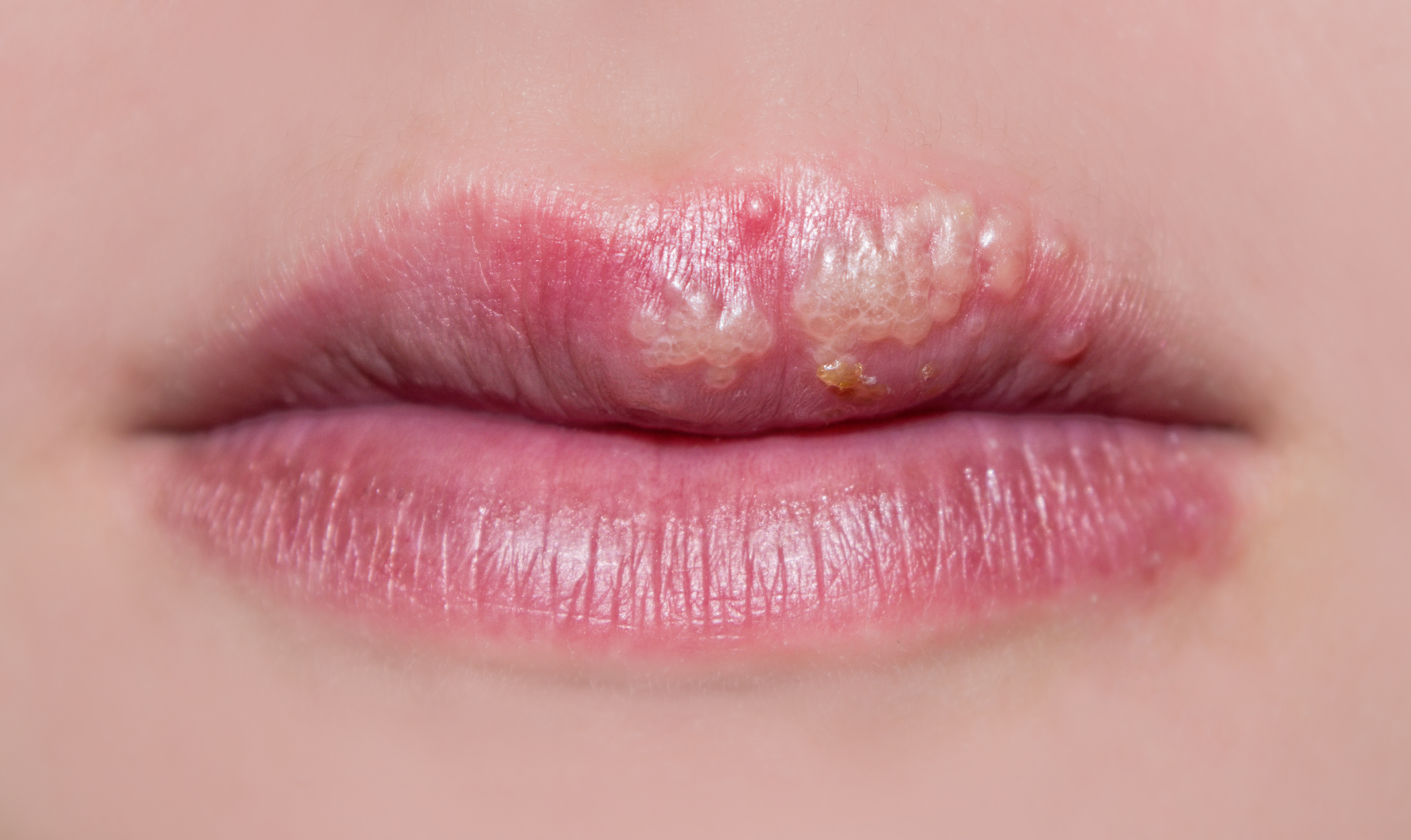WHAT WE TREAT
Cold Sores
Cold sores are red blisters that develop on the face, usually near the mouth and lip area.
Also known as oral herpes, cold sores are a very common viral infection.
It’s been estimated that 50% to 80% of adults in the U.S. have the virus. By the time they reach age 50, approximately 90% of U.S. adults have been exposed to it.

What Are Cold Sores?
Cold sores are small blisters that are filled with fluid. They often occur in clusters, although it’s also possible to develop just one sore. Most of the time, these sores develop around the mouth area. After a cold sore develops, it will eventually break, causing a scab to form. It will generally take two to four weeks to heal. It’s not typical for a healed cold sore to leave a scar.
Cold sores are caused by a contagious virus. If you are diagnosed with the infection, it’s important to take steps to reduce the risk of spreading it to other people. Unfortunately, it’s possible to spread the infection without even realizing that you have the virus. The virus can lie dormant in a person’s body for years, not causing any active symptoms. Even in dormancy, however, it can still spread from person to person.
Although the virus that causes cold sores is incurable, there are treatments available. In addition, there are remedies that can soothe the symptoms of an active outbreak.
Signs and Symptoms of Cold Sores
The symptoms of cold sores occur in cyclical episodes known as outbreaks. In between outbreaks, people do not experience any symptoms. When an outbreak occurs, the cold sores go through five stages.
-
Stage I: About 24 hours before the blisters are visible, people may notice tingling and itching in the mouth area.
-
Stage II: The blisters appear.
-
Stage III: The blisters break open, ooze, and form sores that may be painful.
-
Stage IV: The fluid dries up and the sores scab over. Itching and cracking are common.
-
Stage V: The scab comes loose and falls off. Healing occurs.
For most people, the first outbreak of oral herpes is the most severe one. After the first outbreak, subsequent episodes are often milder. And for some people, the initial outbreak is the only one they will experience.
However, other patients may experience severe symptoms, including systemic issues like fever, chills, headache, and other flu-like symptoms. People who have compromised immune systems may be more susceptible to developing severe symptoms. An immune system can become suppressed due to an underlying, chronic disease, like leukemia or human immunodeficiency virus (HIV).
Causes of Cold Sores
Cold sores are caused by the herpes simplex virus. There are two main strains of this virus: HSV-1 and HSV-2. Most cold sores are caused by the HSV-1 strain. In most cases, people with the HSV-2 strain have genital herpes, which causes sores that develop around the genital region. However, it’s possible to contract cold sores from the HSV-2 strain, such as if a person gives oral sex to an individual infected with genital herpes.
It’s important to note that cold sores can also be spread through non-intimate contact—not just kissing and sex. It’s possible to contract the virus from using shared eating utensils and towels. While the virus will always be contagious, it is most contagious during an active outbreak. To reduce the risk of transmission, infected individuals are advised to avoid close contact during an outbreak. It’s also a good idea to avoid sharing eating utensils and similar items.
Diagnosis of Oral Herpes
The diagnosis of oral herpes is fairly straightforward. In most cases, a doctor can make a diagnosis simply by examining the blisters or sores. However, the doctor may want to confirm the diagnosis with lab results. He or she can gently scrape a sample of tissue from the sore and send it to the lab for testing. Another option is to run a blood test. The blood may reveal the presence of HSV antibodies, which the body will only produce in response to an infection with that virus.
Treatment and Care of Oral Herpes
It isn’t always necessary to receive medical treatment for an outbreak of cold sores. However, if your symptoms are particularly painful or otherwise troublesome, your doctor may prescribe antiviral medications. This can help accelerate the healing process and manage your symptoms.
Antiviral medications are available in oral, topical, and injected form. If you’re prescribed the topical medication, you’ll apply the cream to the sores as directed. The oral medication, which is swallowed, is often more effective than the topical application. It’s generally a good choice for people with more severe symptoms. For people experiencing very severe outbreaks, the doctor may inject an antiviral drug directly into the area.
There are also over-the-counter (OTC) products available to treat cold sores. Once you know that you have the virus, you may wish to keep an OTC medication on hand. It’s generally most effective when applied before the blisters break out—as soon as you experience the tingling feeling. There are also a few home remedies you can try to soothe your symptoms.
-
Apply a cold compress directly to the sores.
-
Soak a washcloth in lemon balm tea and apply it to the sores.
-
Use moisturizing lip balm with SPF.
-
Apply aloe vera gel.
Certain things can trigger an active outbreak. These include stress and sun exposure. To help reduce the risk of an outbreak, practice stress reduction techniques like deep breathing and meditation. And remember to protect yourself from the sun by wearing a wide-brimmed hat and applying skin care products that contain SPF.
When to Talk to Someone About Cold Sores
If you think you may be experiencing an outbreak of cold sores for the first time, it’s a good idea to speak with a doctor about it soon. This allows you to get an accurate diagnosis and patient information. After you’ve been diagnosed, you might not need medical care every time you experience an outbreak. However, you shouldn’t hesitate to reach out to your medical provider for help when needed, especially if your sores are accompanied by a high fever, are very painful, or spread to other areas. In these cases, your doctor might prescribe antivirals.
In addition to talking with your doctor about cold sores, you may need to disclose your infection to other individuals. Since the virus can spread through kissing and sexual contact, it’s important to tell your intimate partners (both current and former) about your diagnosis. It’s possible to transmit HSV-1 to other people in between outbreaks, when you have no symptoms. However, it’s far more common for cold sores to spread during an active outbreak. Let your intimate partner know when you must refrain from contact to reduce the likelihood of spreading the virus.
_
If this is a medical emergency, please call 911. For mental health emergencies, call 988.
Have a visit today
Virtual care is a convenient and secure way to receive medical care for cold sores by phone (where permitted) or video, 24/7/365.
